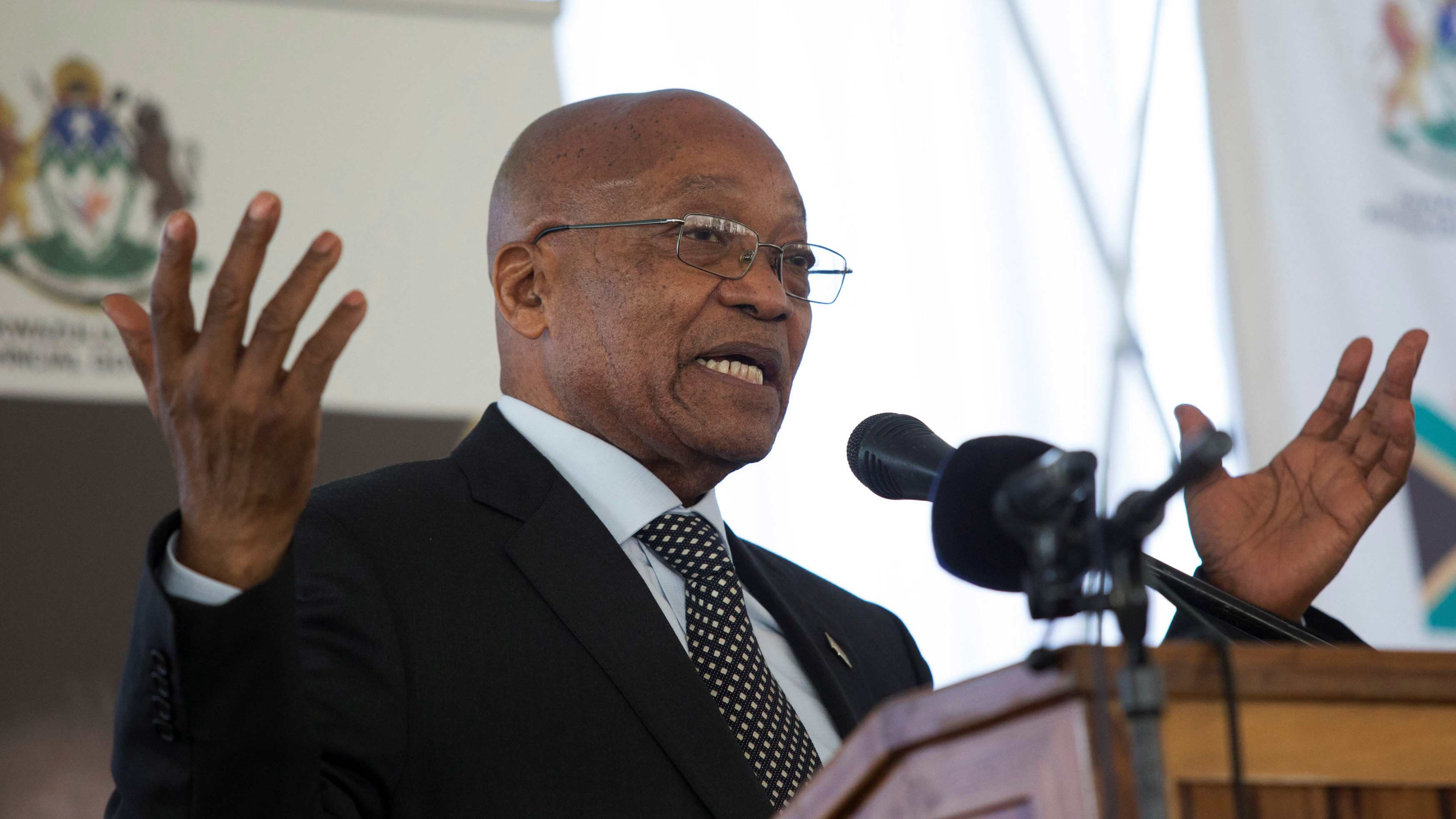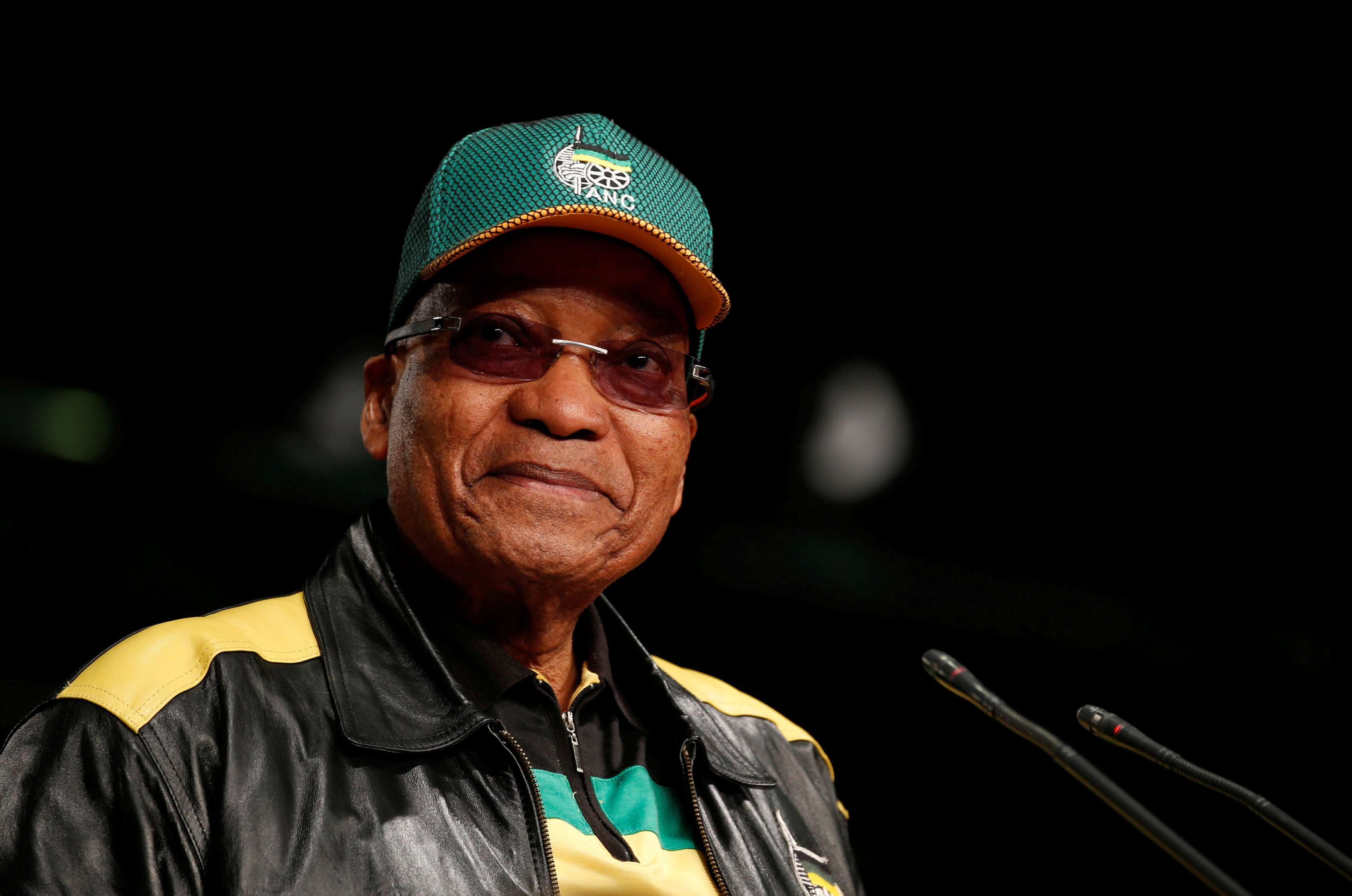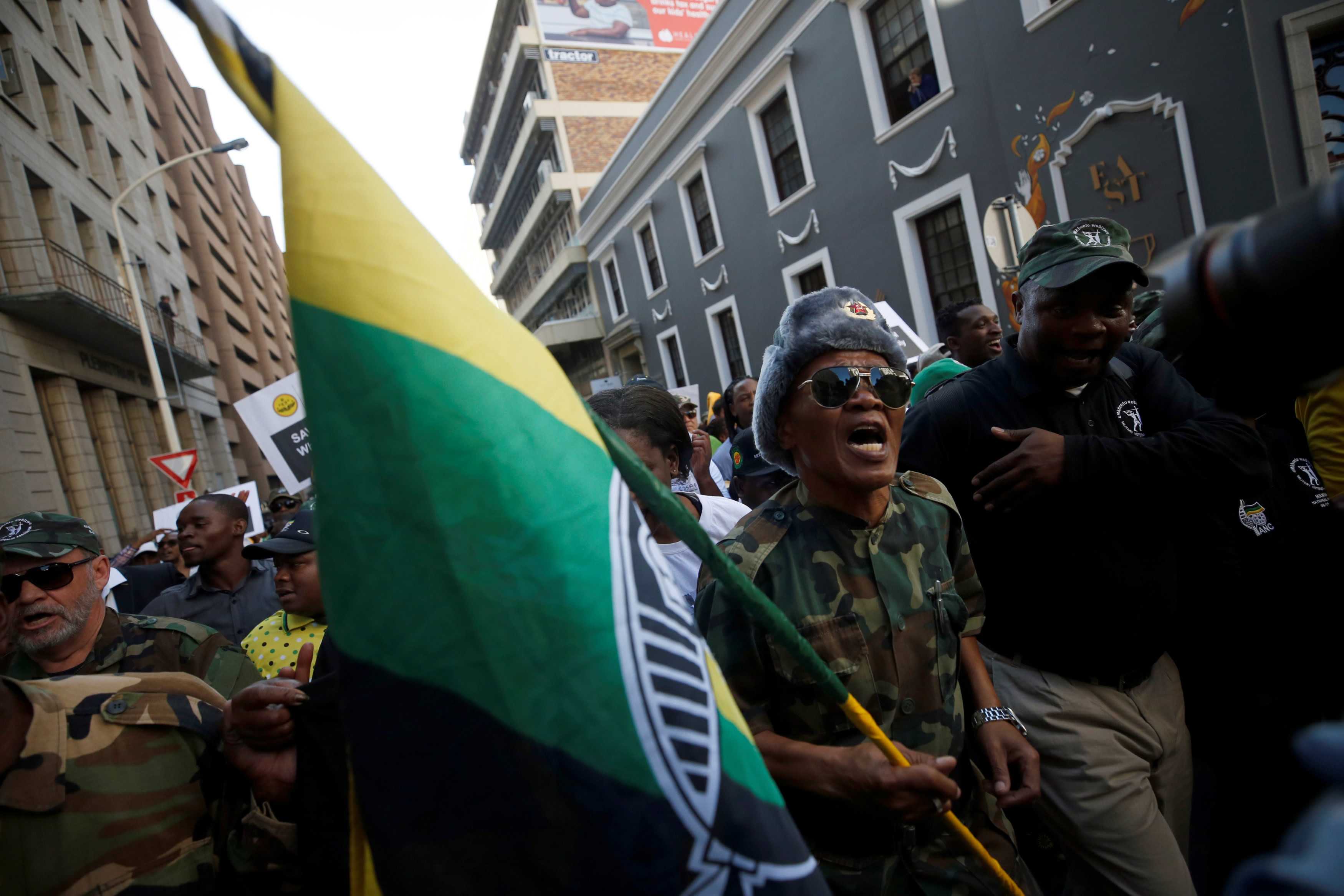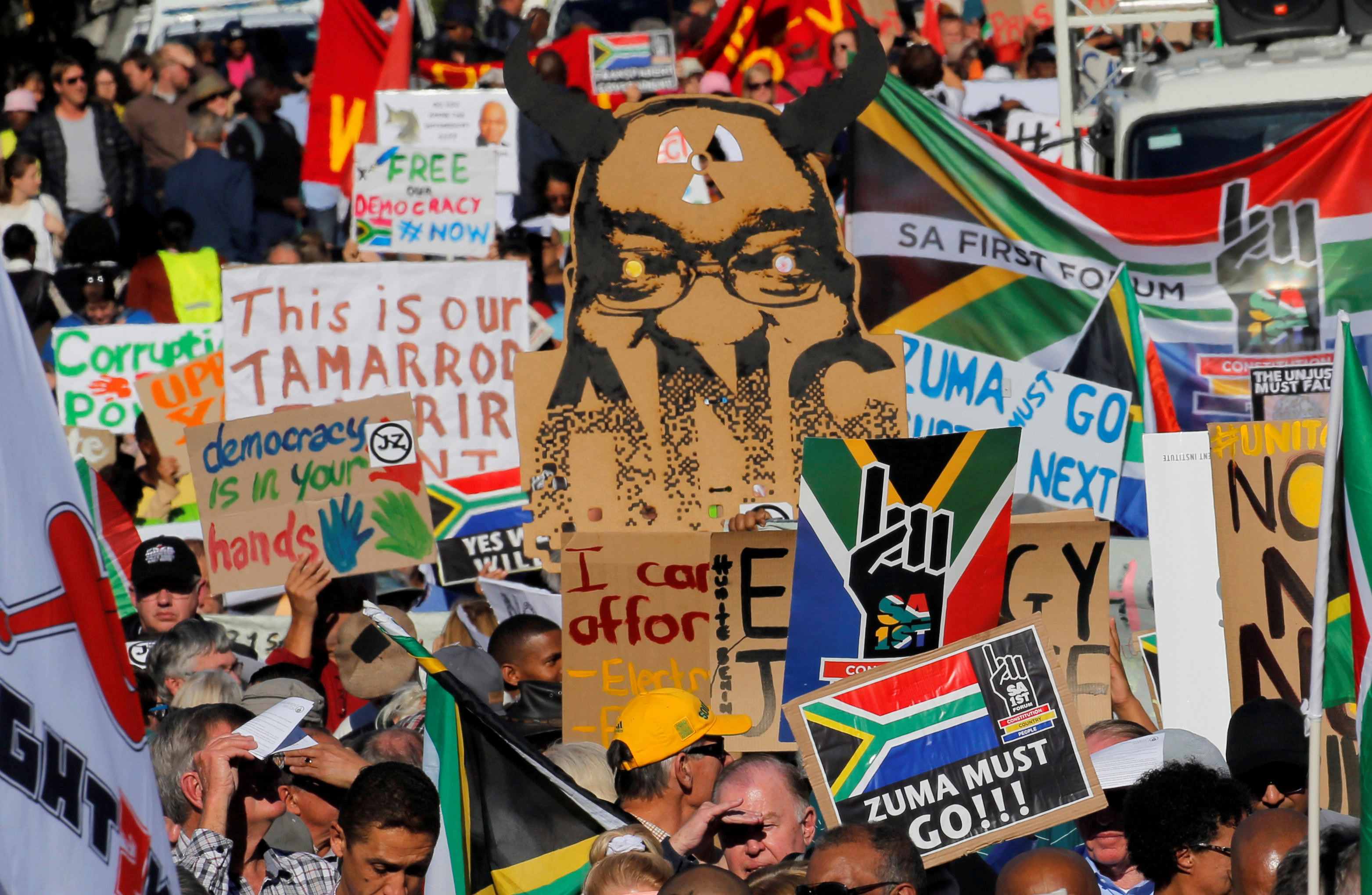
Politics
22:08, 08-Aug-2017
South African president to face parliamentary no confidence vote

South African President Jacob Zuma faces a vote of no confidence in parliament on Tuesday, in a secret ballot aiming to test the loyalty within his African National Congress (ANC) party.
Why is Zuma facing a no confidence vote?
Zuma was elected as the president following his party's victory in the 2009 general election and he was re-elected in 2014.

South Africa's President Jacob Zuma looks on as he officially opens the African National Congress 5th National Policy Conference at the Nasrec Expo Centre in Soweto, South Africa, June 30, 2017. /Reuters Photo
South Africa's President Jacob Zuma looks on as he officially opens the African National Congress 5th National Policy Conference at the Nasrec Expo Centre in Soweto, South Africa, June 30, 2017. /Reuters Photo
His term is currently due to run until 2019. However, as he has been accused of nearly 800 charges of corruption, his tenure as president has become uncertain.
South Africa's economy has suffered lately, with rising unemployment resulting in increased public dissatisfaction at the current state of affairs in the country.
Tuesday's vote, which could end Zuma's presidency, was tabled by the country's largest opposition party, the Democratic Alliance (DA).

Zuma supporters march ahead of the vote of no confidence against him in Cape Town, South Africa August 8, 2017. / Reuters Photo
Zuma supporters march ahead of the vote of no confidence against him in Cape Town, South Africa August 8, 2017. / Reuters Photo
The motion followed Zuma's controversial reshuffle in March, in which he fired several cabinet members including the respected finance minister. Credit ratings agency Moody's downgraded South Africa's credit rating to just above junk after Zuma's reshuffle.
What happens if Zuma loses the vote?
Zuma has survived previous attempts from parliament to remove him. However, it is hard to make a definitive judgement this time as the vote will be in the form of a secret ballot.
The motion needs 201 out of 400 votes to succeed. Although the ANC holds 246 parliamentary seats, several members have already announced publicly that they would vote against Zuma.
According to the South African constitution, if Zuma loses, he would be forced to step down along with his entire cabinet.

Anti-Zuma protesters, civil society groups and faith communities march in Cape Town, South Africa, August 7, 2017. /Reuters Photo
Anti-Zuma protesters, civil society groups and faith communities march in Cape Town, South Africa, August 7, 2017. /Reuters Photo
The Parliamentary Speaker would take up the presidency for 30 days and ANC would then choose its next leader, since it occupies the majority in the parliament.
Experts are worried that there would be more chaos within the ANC if Zuma loses, since it is not clear who would be his successor.
Analysts say that as the ANC is entering a period of change, the DA and another opposition party, the Economic Freedom Fighters, may sense an opportunity to oust the ANC in the 2019 election.

SITEMAP
Copyright © 2018 CGTN. Beijing ICP prepared NO.16065310-3
Copyright © 2018 CGTN. Beijing ICP prepared NO.16065310-3